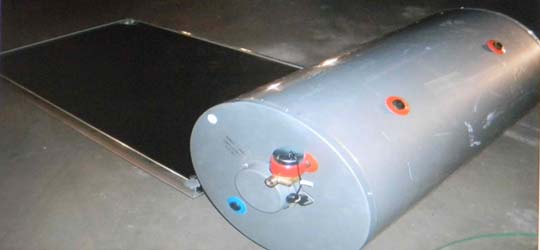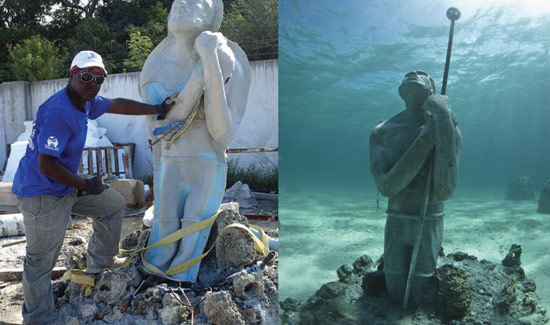 Nassau, The Bahamas – Installing solar water heaters to replace the traditional home appliance is the second initiative of the National Energy Policy to reduce the costs of high-electricity consumption and wasteful-usage of municipal water resources.
Nassau, The Bahamas – Installing solar water heaters to replace the traditional home appliance is the second initiative of the National Energy Policy to reduce the costs of high-electricity consumption and wasteful-usage of municipal water resources.
According to Minister of State for the Environment Phenton Neymour, BEC could not afford the $570 million expansion plan quoted by the IDB, so the government began promoting reduction and conservation measures to solve the energy overload on BEC.
“When we came to office, we had to look at ways to reduce that expansion plan and at the same time provide for the growing market that we have right now in The Bahamas. That review was completed. It’s been analysed by BEC. It’s also been used by the Government in establishing some of its new initiatives over the last two years,” said Minister Neymour.
“The second aspect of it was to look at the energy sector and to look at ways in which we can add to the services being provided by BEC. All of you know as Bahamians that we have a lot of natural resources. We have a lot of sun, we have the ocean right at our feet, and also there’s a considerable amount of wind, so we decided to look at the possibility of using Renewable Energy throughout The Bahamas. This study basically looked at each island and the potential for each island.”
In May 2011, the government’s began promoting its first initiative of the National Energy Policy to publicly distribute hundreds of thousands of Compact Florescent Lamps (CFLs) throughout The Bahamas.
“It was very clear to me that we needed to establish a clear direction for this country moving forward in regards to energy and where we were going in regards to providing it for Bahamians, preparing for the future, and utilising all options that were available to us,” said Mr. Neymour.
“So we began by formulating a National Energy Policy Committee. It was the second committee formed. The first one was not successful because it was primarily composed of public servants. But I recognise it was important to improve the private sector, in establishing policies, such as energy, because they play a vital role in providing the service and they also have valuable input into it.”
On June 14, local contractors and government workers from the Bahamas Electricity Corporation, Ministry of Housing, Department of Environmental Health (DEHS), and Ministry of Works participated in the “Implementing Sustainable Energy Projects” programme, a pilot project sponsored by the Inter-Developmental Bank.
“During the process, we sought the advice of many professionals in the industry, locally and abroad, and we were able to receive the services of the IDB, who also had their contacts and provided assistance in establishing a National Energy Policy Report,” said Mr. Neymour.
“During that process, we received funding from the IDB and from the GEF [Global Environment Fund]. The funding was primarily to address the energy sector moving forward and also to address the challenges we were facing in BEC. The areas of concern was to look at BEC’s operations internally, field operations, its processes, and its financial standing. We also sought the advice and got input about the expansion plan for BEC.”
Trainees attended a Solar Photovoltaic (SPV) Systems installation-training seminar in the BEC Big Pond Command Centre, with an experienced company, called Alternative Power Sources, that has installed solar panels in Jamaica.
The solar energy training programme is an extension of the Bahamas Government’s energy efficiency initiative called “30/30 by 2030”. It is geared to steer the nation to follow the guidelines of the National Energy Policy to promote the integration of alternative power sources in order to reduce the rising cost of traditional fossil fuel energy.
By Gena Gibbs
BAHAMAS INFORMATION SERVICES



